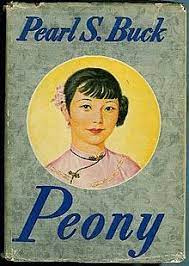Count me in as one of the legions of fans of Chicago
author Sara Paretsky and her fictional private detective V.I. Warshawski, protagonist of a series of nearly 2 dozen really good mystery books, and one so-so movie
starring Kathleen Turner. Turner was okay, but Hollywood screenwriters mistakenly (and arrogantly) believed they could improve the storyline … they were wrong.
I’m sure I’ve read at least a dozen of the mysteries, though
not lately. So, when I picked up Fallout at a bookfair recently, it was like a reunion … there was Lotty Herschel and Max Loewenthal,
Sal the bartender, Bobby Mallory from the CPD, and of course Mr. Contreras and
the dogs: Mitch and Peppy. I hadn’t
realized how much I missed them.
Almost all of Paretsky’s books are set in Chicago, not so
with Fallout. It starts in Chicago, but
the mystery quickly moves on to Lawrence, Kansas and its surrounding farmland. The case is a missing persons search – but like
all of Vic’s cases, gets complicated fast.
Fallout expands into a complex plot of intertwined murders, family
dynamics, anti-nuclear demonstrations, police cover-ups, espionage and chemical
warfare. (At times I thought I was reading Vince Flynn). The climatic end of
the book takes place in a missile silo in the middle of a sorghum field!
An aside: There is quite a bit about Cold War era missile bases in this book, which reminded me of the
Nike base in Portage, Indiana where I grew up. It was operational from 1956 to 1976.
One of the joys of reading a V.I. Warshawski mystery is
that Paretsky knows her geography, she has Chicago down perfectly. She surprisingly knows Lawrence pretty well
too. But then Paretsky was born in Iowa and
grew up in Kansas, staying just long enough to get a B.A. from the University
of Kansas).
Recommendation: You bet, and if you’ve ever read a V.I.
Warshawky mystery, then I don’t have to explain why.


